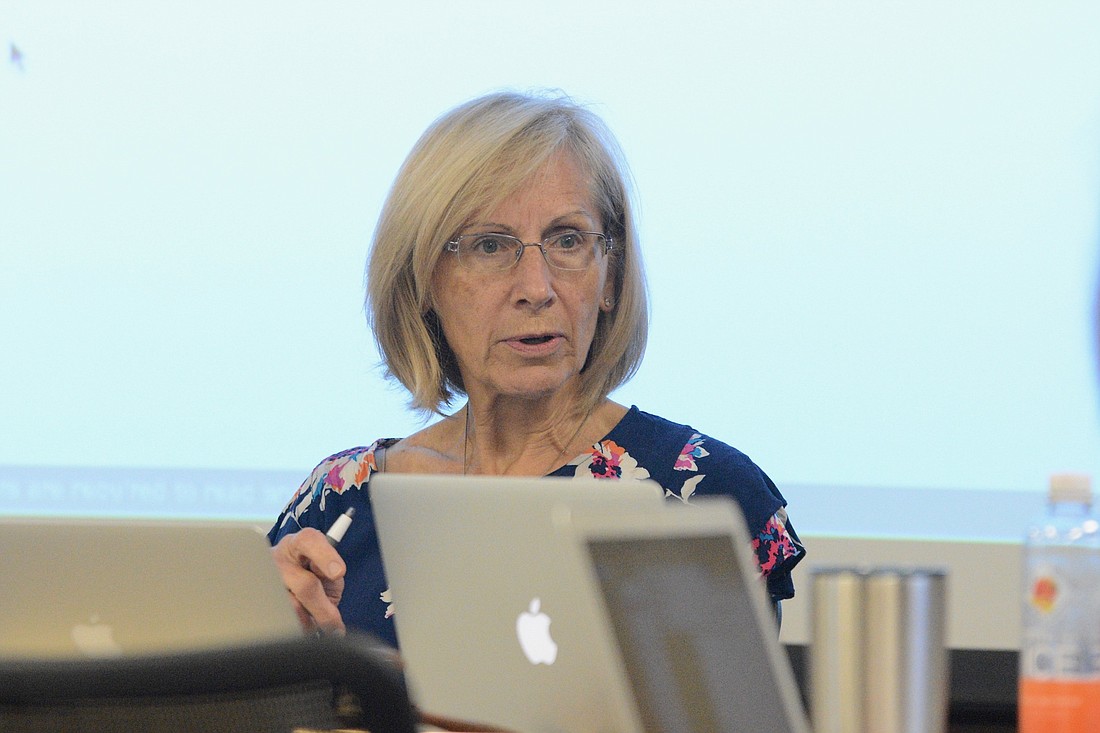- January 23, 2025
-
-
Loading

Loading

Calling the current system “fragmented, uncoordinated” and “ineffective,” Flagler Schools and Stewart Marchman Act Behavioral Healthcare plan to use state grant money to provide mental health counseling or substance abuse counseling, as well as access to a school-based substance abuse counselor, for students who are at risk of being funneled into the juvenile justice system.
Flagler County School Board members listened to the proposal during a July 10 School Board workshop. They voiced no objections.
The Flagler County Youth Behavioral Health SOC Implementation Project, also called the Flagler Youth Diversion Project, would stretch over three years — beginning this August — and receive $231,727 in grant funding each year. That would include money to hire a new substance abuse counselor for the school district and contract with a number of partner organizations. A total of 19 organizations have signed onto a system of care memorandum or understanding.
“Focused assessment over the last 11 months has made it clear that the current system is fragmented, uncoordinated and extremely difficult for families and youth-serving professionals to navigate, especially families with youth who are most at risk for involvement in the juvenile justice system,” a grant application document states. “The results of this ineffective system are children struggling in school, school suspensions, juvenile justice referrals, inappropriate use of involuntary commitment, psychiatric hospitalizations, child welfare placements and other symptoms of youth and families in crisis.”
Children who are severely mentally ill often have access to multi-agency teams, but that’s not the case for children who don’t need such extensive interventions and often find that lack of insurance, or insurance network barriers, keep them from getting care.
And students have a number of risk factors, according to 2015 data included in the grant application documents: 19.9% of Flagler students reported having blacked out from alcohol before; 35.7% of high schoolers had used marijuana, 44.9% had family members who were currently or had previously been in jail or prison, 509 students during the 2015-2016 school year were homeless (including 20 living in shelters and 39 in motels), and 24.5% of individuals under 18 lived in poverty. Of 2,768 Flagler households with children, 28% were led by a single mother. In the 2015-2016 school years, 183 youths were arrested. That represented a steady decrease from 334 in the 2011-2012 school year, when deputies were less likely to issue civil citations.
The new program, to be overseen by the Flagler Public Safety Coordinating Council, would “increase access for at risk youth to effective mental health and substance abuse interventions, at the earliest possible point, to prevent contact with the juvenile justice system or divert youth quickly from the juvenile justice system into appropriate community and school-based services” through a comprehensive, coordinated behavioral health system, according to grant application documents.
School Board member Colleen Conklin asked how the district will inform parents and students of the screening tools the district has available.
Lynette Shott, the district’s executive director of student and community engagement, said the tools will be used when students enter a continuum of care — as they do, for instance, by seeing a guidance counselor. The district is also adjusting the details of how its system categorizes student needs to better align with the state’s three-tier categorization system, and is developing a database system that it can use to track how many students were referred for mental health services, how many were assessed and how many are receiving services.